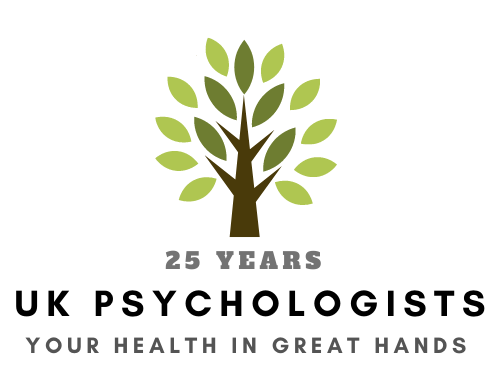Therapies offered
Cognitive Behaviour Therapy (CBT)
CBT is the recommended first line of approach in therapy for many conditions as outlined by the government’s NICE (National Institute of Clinical Excellence) organisation.
CBT is a recognised and well researched approach that looks at the way your thoughts influence your emotions and behaviours. You may like to keep a record of your emotions and thoughts and together I could help you explore these thoughts for their usefulness and whether they are realistic or overly pessimistic.
Together we could explore whether you tend to be self critical, overly pessimistic or fearful. Whether you tend to jump to negative conclusions or have unrealistically high expectations of yourself and others.
For anxieties/fears we might look at situations you avoid to help you slowly face those fears at a slow and gradual pace which is comfortable for you, while also helping you learn new coping skills to deal with your panic and anxiety.
Acceptance and Commitment Therapy (ACT)
This therapy uses mindfulness and acceptance to help you overcome obstacles in your life. It explores how our attempt to avoid painful emotions leads us to attempt to control these emotions, often without a good outcome or effectiveness for us. We would looking at noticing our feelings, even painful ones, and learn how to accept their presence rather than fearing them and pushing them away. We have to be able to experience all emotion knowing that feelings will pass through. This therapy also looks at your values and attempts to help you work towards important objectives for you and not to be put off by the experience of difficult emotions or thoughts.
Mindfulness
Mindfulness is the active attempt to bring the focus of the mind into the present moment and away from unhelpful, obsessive or distressing thoughts. When the mind drifts into thinking about the future it is often associated with feeling of uncertainty or anxiety. If the mind drifts back to the past it is associated with feelings of sadness, regret and remorse. If we can develop skills to keep the mind in the present we can work towards reducing or learning to tolerate difficult emotions.We can also learn to be observant and discerning about which thoughts we pay attention to and which thoughts we should move away from. In sessions I can explore mindfulness skills if I believe they would be helpful to you and help you to build your practice of these skills to make them a part of your daily life.
Compassion Focused Therapy (CFT)
This therapy uses evolutionary models of brain development to understand how and why the brain develops feelings such as shame, anger and anxiety and thoughts around self-loathing and self-criticism. It aims to help you promote mental and emotional healing by developing more compassionate responses both towards yourself and others. It helps with developing resilience to life stress as well as emotional well being.
Solution Focused Therapy
This therapy holds at its core a belief that you have strength and abilities which have helped you get through life up until now and despite hitting a difficult patch you have the ability to turn your life around.
Together in this therapy I could help you identify where you would like to get to in your life and how you would like things to be different and explore past times when you felt you coped better, no matter how trivial, and help identify your strengths so that we can build upon these skills.
Family Therapy
This is a useful therapy if more than one person in the family is affected by a problem.
It is also useful if you as a family want to avoid one person being blamed for the difficulties.
Or if others in the family has different views as to the solutions.
Or if you would like others in the family to understand the issues by attending the therapy all together.
I am happy to see families with children of varying ages and also different generations.
Couple Counselling Therapy
Either on your own, or with your partner, this therapy helps you identify area of difficulty such as communication, intimacy or sexual problems and explores ways of overcoming these problems. If I see you as a couple I would want to hear from both of you about your ideas and try to establish how you can find a way of living together, improving your relationship or if necessary separating in the most painless way possible.
Psychodynamic Therapy
This therapy is useful at helping you to look at how past relationships affect your current relationships. Through this therapy we would look for patterns in your emotions, the way you unconsciously protect yourself, your expectations and relationships with others.
Eye Movement Desensitisation and Reprocessing
This therapy is useful if you have unwanted images or distressing memories which overwhelm you. In EMDR Counselling I would use a specialist machine which activates both sides of your brain helping you to re-process this distressing memory so that it no longer overwhelms or controls you.
Pain Management
This is a specific programme aimed at individuals who have chronic pain affecting their lives. Through this counselling, we would look at the nature of pain, medication, coping skills, sleep issues, pacing yourself and stress amongst other issues.
EFT Emotional Focus Therapy for Couples
EEFT is a well-researched and effective form of therapy for working with couples that looks to improve patterns of attachment and bonding in couple relationships. The approach can help couples form deeper and closer secure emotional bonds which helps to stabilise their relationship and improve communication and intimacy. In the process, we would look at the patterns that develop and help you identify these patterns, so you become united in fighting the pattern rather than each other. The therapy helps you both develop and support you to share deeper feelings, which then promotes closeness and intimacy.
